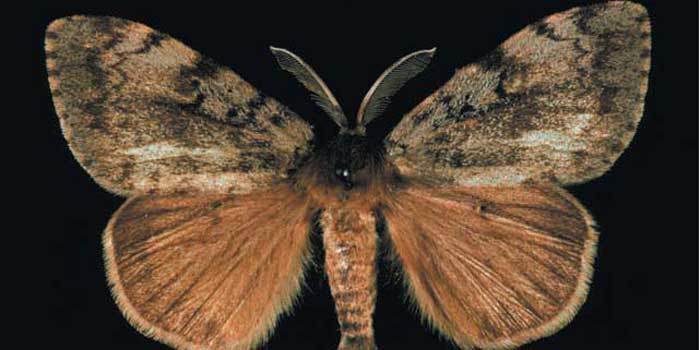Gypsy Moth Treatment Meetings Will Be Virtual

Aerial treatments of the invasive insect, commonly known as gypsy moth, are planned for Kosciusko County. File photo.
KOSCIUSKO COUNTY — The Indiana Department of Natural Resources will host eight virtual meetings to discuss the proposed areas for aerial treatments of the invasive insect commonly known as gypsy moth, the scientific name for which is lymantria dispar.
The virtual meeting dates are Jan. 25 to Feb. 2.
Lymantria dispar is considered one of the most destructive insect pests threatening rural and urban forests. To limit its spread, Indiana monitors populations through surveys and recommends treatments to decrease populations.
Areas proposed for treatment include Kosciusko County. The area is Warsaw MD 22, which is the southwest portion of Warsaw. The proposed treatment type is for mating disruption. The proposed treatment product is SPLAT GM-organic and proposed acres is 2,784.
Meeting dates and times are:
• Noon Jan. 25, Jan. 27, Jan. 31 and Feb. 2.
• 7 p.m. Jan. 25, Jan. 27, Jan. 31, and Feb. 2.
To join a meeting go to zoom.us on a computer, smartphone, or other handheld device and click “join a meeting” at the top of the webpage. The meeting code is 865-8865-1652; passcode is 4444. You can also join by phone for the audio-only portion of the meeting by dialing (312) 626-9799 or (929) 205-6099 at the above meeting times and using the meeting code to connect; service-provider fees may apply.
All meetings will discuss the same information, so there is no need to attend more than one. The presence of this invasive insect, problems associated with infestations, and methods for dealing with the insect will be discussed. While open to anyone, the meetings will be geared toward residents of the sites, which have been identified as having infestations.
To see detailed maps showing infested and proposed treatment areas, view the meeting’s PowerPoint presentation (if you can’t attend a meeting), see a series of question and answers, and get more information, visit gypsymoth.IN.gov and click the link “2022 Indiana Gypsy Moth Treatment Program” at the top of the page.
For more information, call toll-free at 866-NO-EXOTIC (663-9684) or call the local county extension office at 888-EXT-INFO (888-398-4636). People can also follow the DEPP on Twitter @INdnrinvasive.
Mail questions and comments on the proposed treatments to: Gypsy Moth 2022, Indiana DNR Division of Entomology and Plant Pathology, 402 W. Washington St., W-290, Indianapolis, IN 46204-2739 or email [email protected]. The public comment period ends at 4:30 p.m. March 4.
Options that will be discussed in detail at the meetings include:
• Taking no action.
• Using mass trapping, which involves setting a large number of traps in a concentrated area to capture male gypsy moths before they have a chance to locate and mate with females.
• Using biological control, which involves the aerial application of the naturally occurring bacteria Btk (bacillus thuringiensis var. kurstaki), which eliminates gypsy moth larvae.
• Using mating disruption, which involves the aerial application of the gypsy moth mating pheromone (or scent) that confuses male gypsy moths and prevents mating.
• Using integrated pest management, which involves the combined use of the above options.
